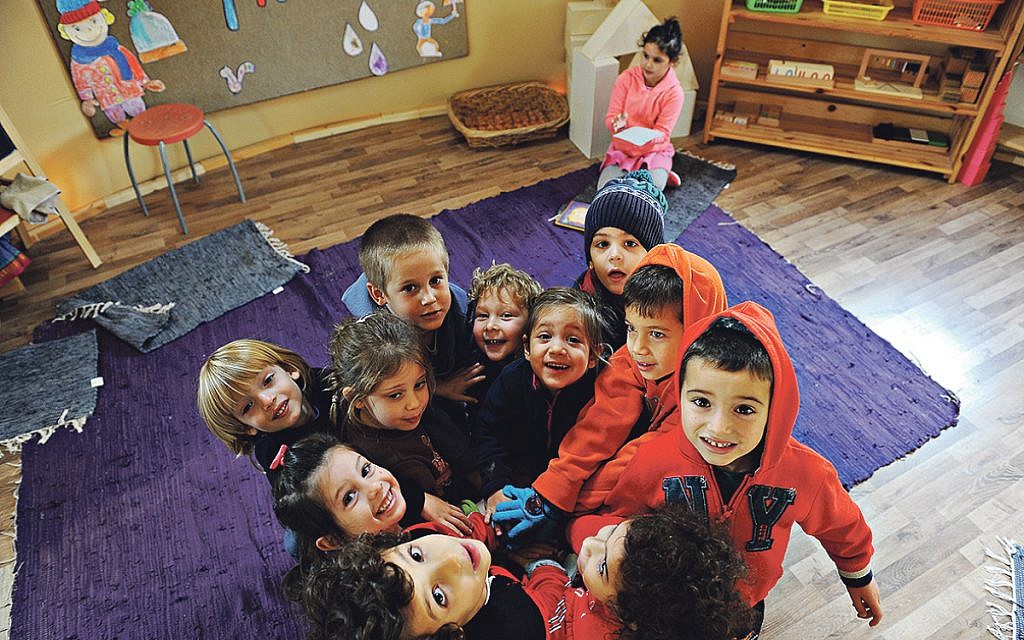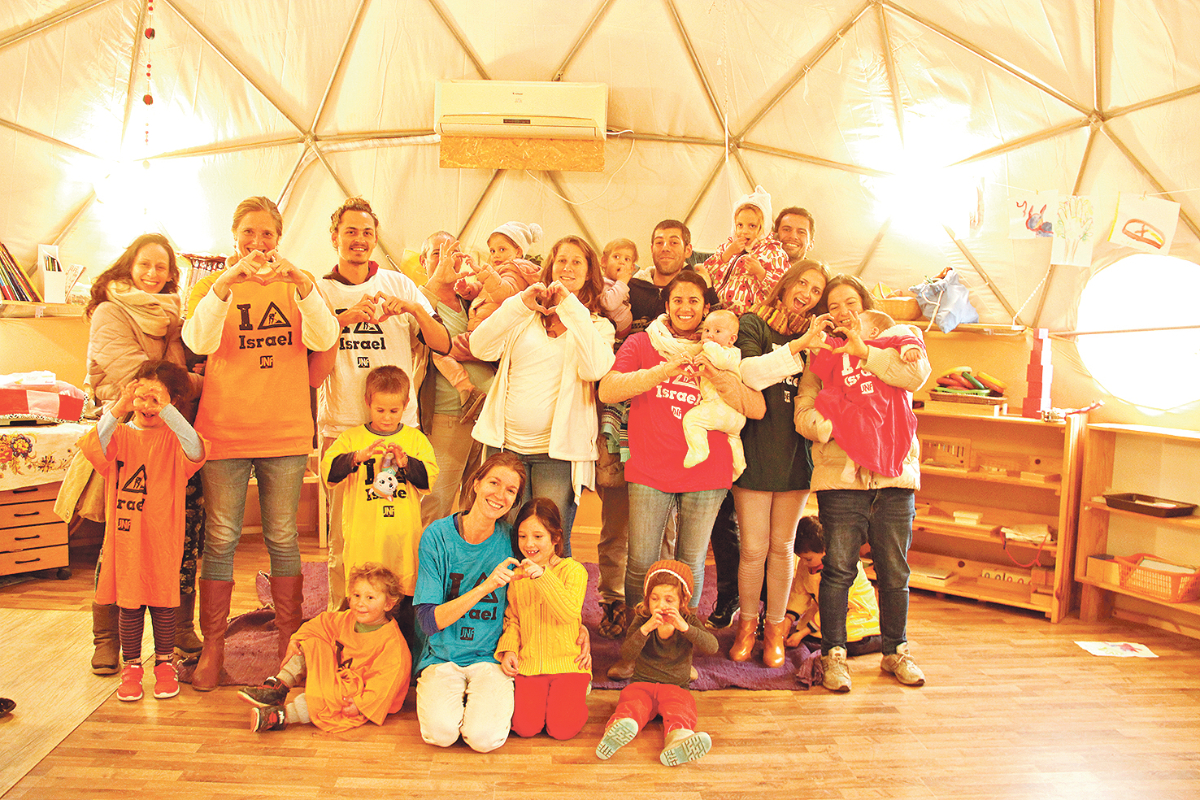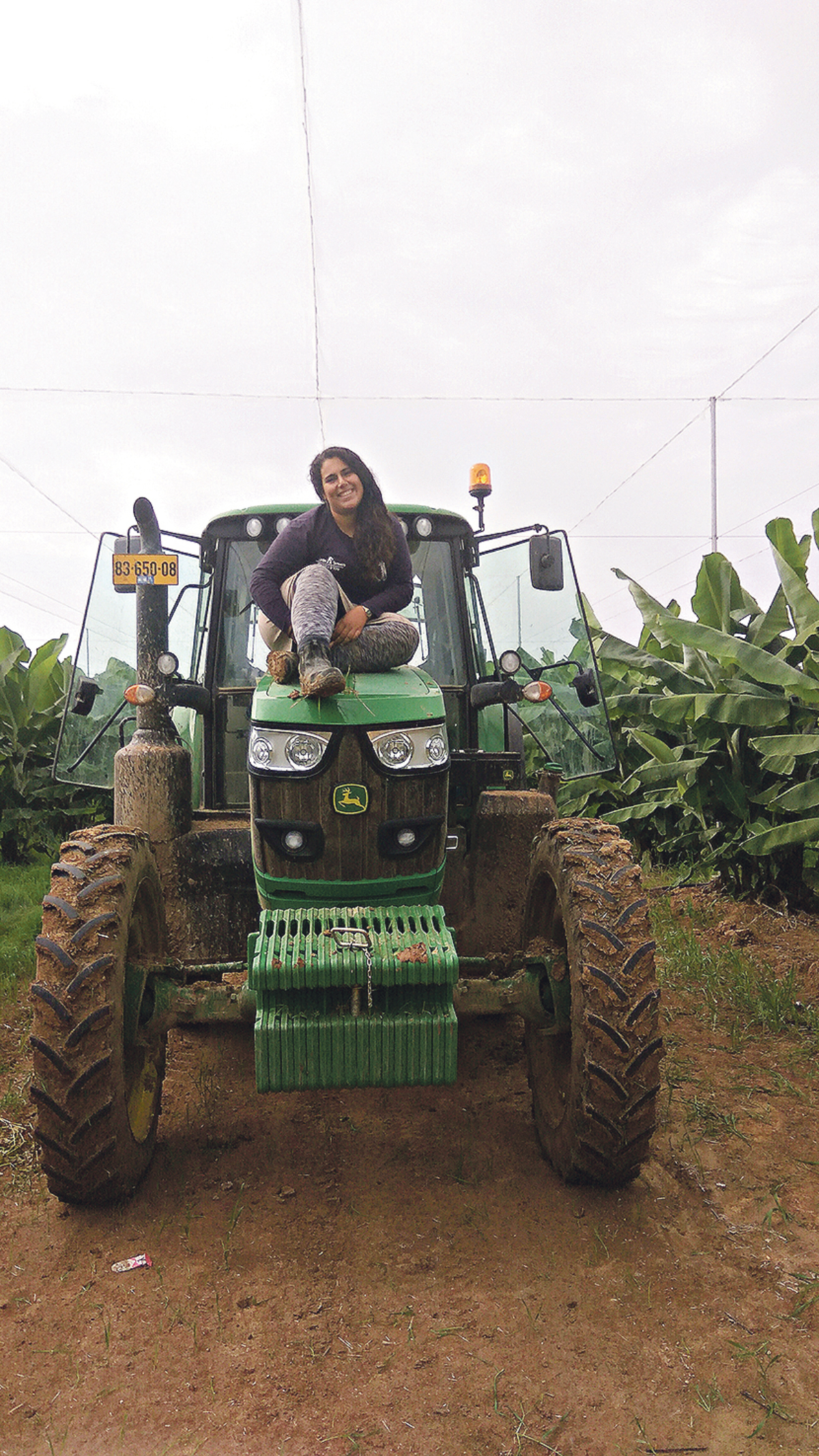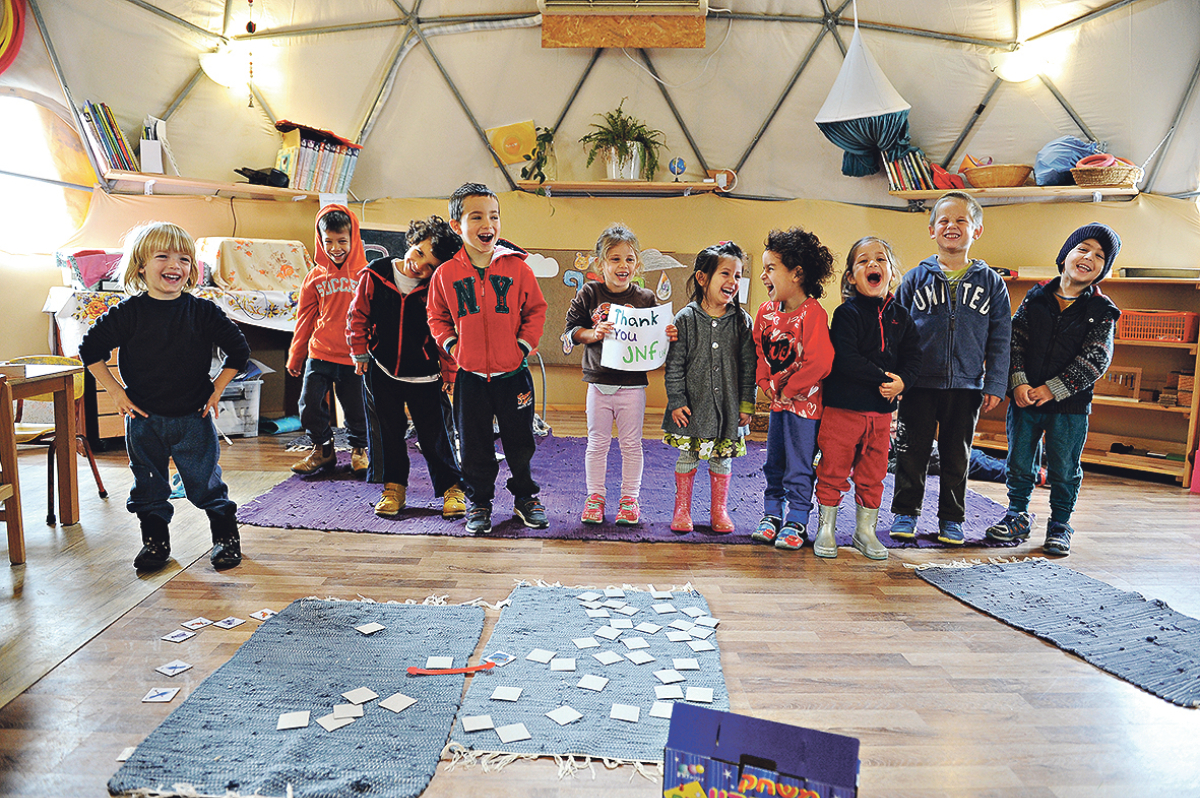JNF UK Green Sunday: Modern pioneers working on the front line
Jenni Frazer talks to the people living in communities close to the Gaza Strip about how they are revitalising the area with JNF UK’s help, despite the odds
As you walk through Nahal Oz, one of the kibbutzim closest to the Gaza Strip, your eye is drawn to a shocking structure in the middle of the kibbutz.
It’s a wall that surrounds the kindergarten. It’s covered with child-friendly paintings of animals and flowers, but it’s a looming, defensive framework that is designed for one thing – to protect the kibbutz children if there is a rocket alert. And Nahal Oz has seen everything: rocket attacks, flaming kites, burning balloons and small missiles. A four-year-old boy was killed by a rocket in 2014.
But Yael Raz, who was born on the kibbutz, which lost 25 percent of its members in the wake of the 2014 Gaza war, is remarkably confident about the future of Nahal Oz.
Get The Jewish News Daily Edition by email and never miss our top stories Free Sign Up
“We had a huge crisis in 2014,” she admits, “but we chose to fight back.” The kibbutz brought 28 new families and several young adults to Nahal Oz. Now, with the support of JNF UK, there are a number of programmes that are improving the kibbutz’s chances.
First, and most successful, is a pre-army programme for around 40 boys and girls from all over the country. Each student in the programme gets an “adopted family” and can decide how they want to work with the kibbutz community.
Nahal Oz decided to place the pre-army teenagers in homes in the centre of the kibbutz. Laughing, Raz agrees it’s very noisy sometimes – “but it’s lovely to have them here, making a noise, playing their music, playing with our children”. There’s a student programme for people aged 25 plus, who attend the nearby Sapir College, close to Sderot. But perhaps the most striking programme is HaShomer HaChadash, a pioneering project aimed at people who have completed their army service and want to reclaim their Zionist identity.
The programme, which has a strong relationship with JNF UK, began as a fightback against criminals who were attacking farmers and stealing cattle and crops. Today, it operates throughout the north and south of Israel, offering its participants an opportunity to engage with the land – literally and educationally.
Uri, a former high-ranking army officer who runs HaShomer HaChadash on Nahal Oz, says the organisation abides by the words of Zionist activist Joseph Trumpeldor – “that the land should be defended to the last furrow of the Jewish plough”.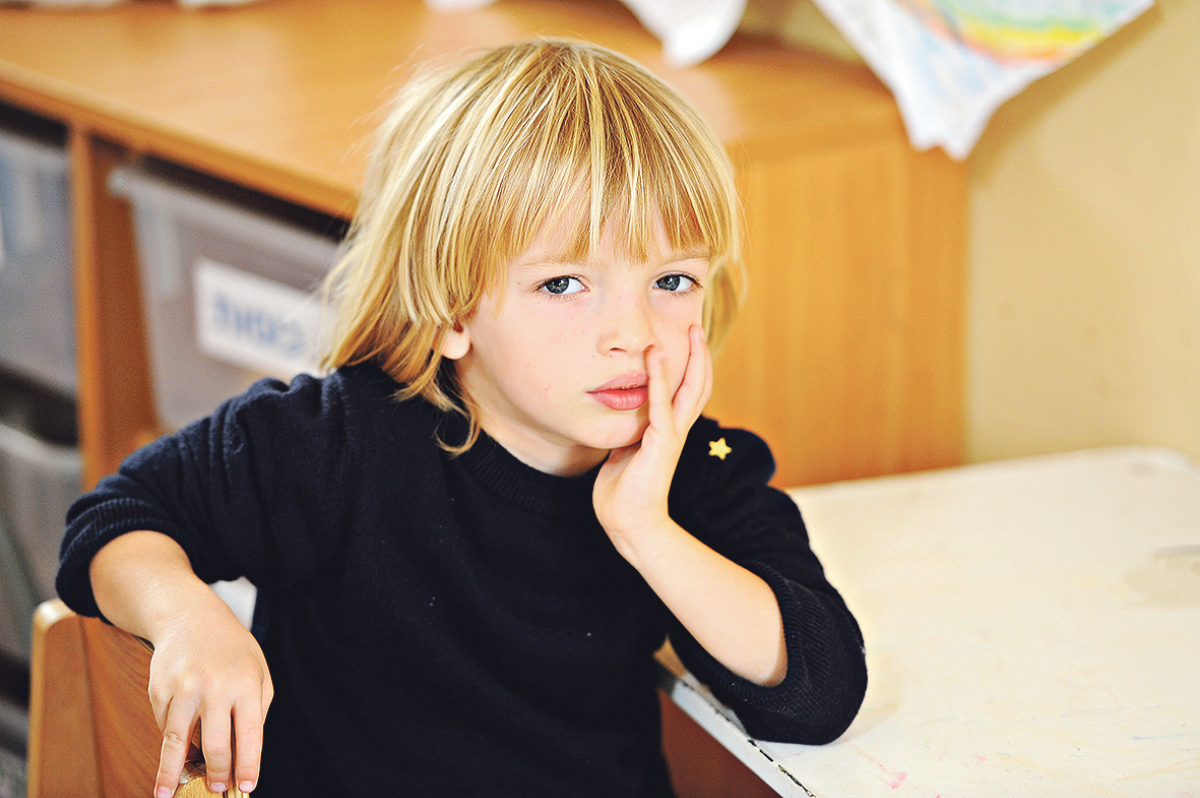
Almog, 21, covered in mud from a morning working in Nahal Oz’s fields, was a commander in the army and intends to study nursing after completing eight months with HaShomer HaChadash. “I wanted to know how to give something to my country,” she explains. “And this way, it’s amazing”.
Raz, the kibbutz veteran, is really happy with the input of the newcomers, but is desperate for Nahal Oz to develop a new income stream. At the moment, its income comes from agriculture – wheat, tomatoes, potatoes, corn, avocados and bananas – and a 700-strong cowshed providing milk to the locality. “We could do with a high-tech facility on the kibbutz,” she says.
Its a similar story at another kibbutz hugging the Gaza Strip, Kerem Shalom, which has the dubious honour of being the closest Israeli settlement to both Gaza and Egypt.
Founded in 1967 and disbanded in 1995, it was re-established in 2001 and has teetered on the edge of difficulty ever since, not least when Israel Defence Forces soldier Gilad Shalit was kidnapped nearby in 2006.
The 2014 Gaza war hit Kerem Shalom very hard and by 2016 there were many questions as to its continued viability. It desperately needed new members, but its location, and general air of run-down hopelessness, was against it.
However, as the kibbutz’s Roni Kissin recounts, things are changing for the better. From a very low base, they are now up to 54 members – true, not the 80 usually demanded as a minimum by the government, but an improvement. The kibbutz, together with JNF, held a special volunteers’ day last August, when people from all over Israel came down south to help with the replanting and returfing of the centre of the kibbutz.
Most striking of the innovations is a small synagogue, new to the secular kibbutz. As Kissin explains: “We are not religious, but some of us wanted a synagogue for Yom Kippur, for barmitzvahs, for a brit.”
The synagogue opened last June and, in its wake, nine new families arrived at Kerem Shalom – all of them religious. As we speak, a strictly religious man, payot curling past his shoulders, knocks on the synagogue door to greet Kissin.
Outside there is evidence of landscaping as whole areas of the kibbutz, formerly a giant sandpit, have been re-turfed with grass, providing a safe play surface for the children.
And adding to the mix of people in Kerem Shalom, the kibbutz has for the first time a group of young soldiers, who have decided to make their lives there. “It’s so good to see vibrant young people here”, says Roni.
Like Raz, Kissin would like more income opportunities in Nahal Oz, , and longs for a small factory to add to the agriculture work the kibbutzniks already do. (They also rent out some of their fields to a solar panel project). But she is “very optimistic” about Kerem Shalom’s future.
“Here, there is a fantastic quality of life. You have nature, you have deer, owls, no traffic, clean air – and you have a community”.
The community imperative is strong in the Negev, and particularly around the settlements next to the Gaza Strip. On our drive around the area we stop in a nature park, popular with tourists, to be greeted by throngs of teenagers from all over Israel. They’ve come to help with clearing trees damaged by fire bombs sent over from inside Gaza. Once the burned trees are moved, the business of replanting begins.
Next stop is a different kind of community: Garin Harel, a group of young adults who met in the army and Ben-Gurion University, and formed a tight-knit network of people determined to forge their own space in the Negev.
Asher Yiftachel, a spokesman for the Garin, is a rangy, affable man who speaks in an office just off a shiny new meeting centre – for which JNF UK has provided the flooring and benches, only one element of its support.
At first, says Yiftachel, the Garin operated out of a community centre in Be’er Sheva, with about 50 or 60 members. Now they are up to 200 people, and their small settlement consists of bright little red-roofed houses with proudly raked gardens, and their unique selling point is that they have done everything themselves.
The major development of the Garin took place during the serious missile attacks from Gaza in 2014, but members were undeterred, installing water systems, electricity and housing, and even their own compost and recycling system. “People are attracted to what we have to offer,” says Yiftachel. The group has grown rapidly, mainly because of the large number of children and the freedom they have in the area, but the Garin is keen to welcome single people, too. “We will also bring Jewish volunteers from abroad. We have housing for them.”
The Garin specialises in attractive educational programming and most of its members – social workers, teachers – work in and around the area. There is also a small high-tech company at the settlement itself, where Yiftachel works. It makes marketing and digital development for the WalkMe company, which specialises in software guides.
Unlike Nahal Oz and Kerem Shalom, which both seek alternative income sources, Garin Harel is relatively self-sufficient. But Yiftachel would love more funding for the Garin’s pride and joy: its volunteer programmes, which work throughout the Negev.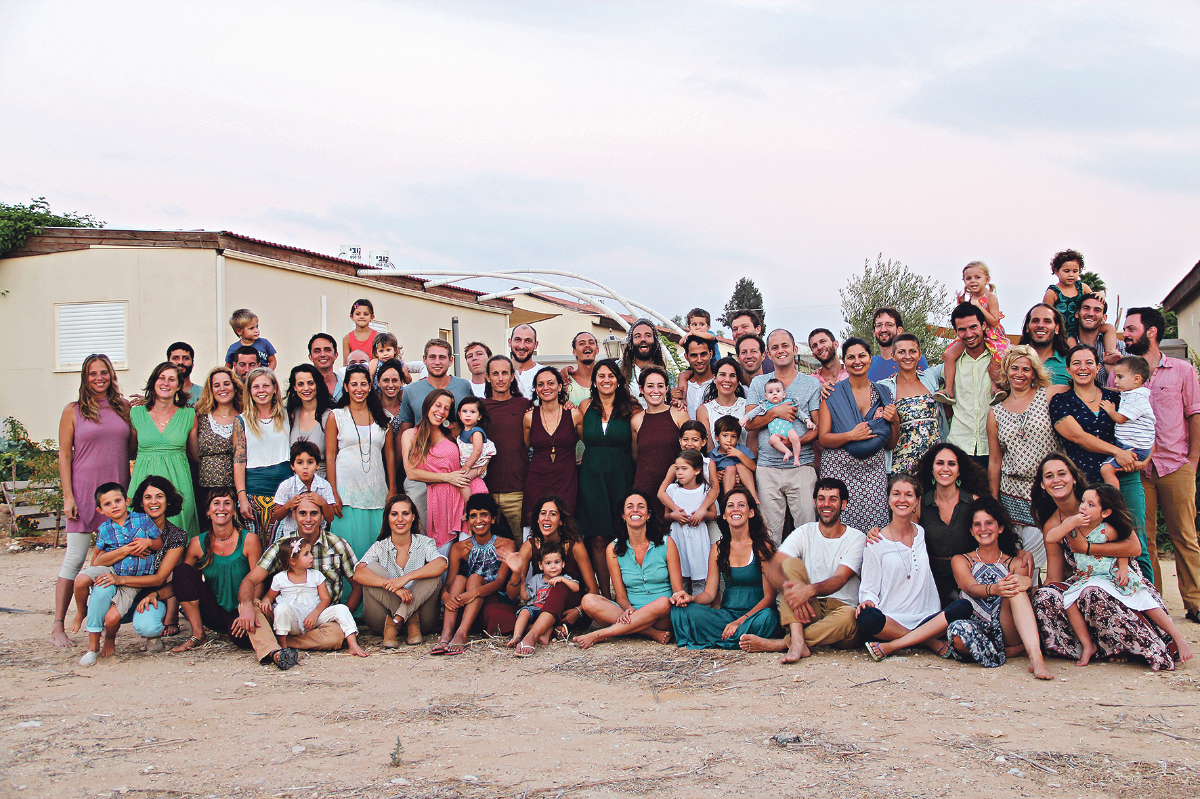
Our last stop is Sderot, the biggest township in this Gaza area of the Negev. It is infamous for being the focus of rocket attacks from the Strip and its former mayor, David Bouskila, often took visitors to the cramped police station to show “souvenirs” – pieces of jerrybuilt fuselage or missiles that had failed to hit their targets.
By 1996, says Bouskila, who was mayor for 15 years until 2013, Sderot’s population was around 25,000. “But between 2001 and 2008, about a third of the residents ran away.” He himself ended up running the town from inside an air raid shelter during the worst of
the bombing.
After JNF UK began supporting Sderot, a safe area for children’s play was one of the first projects, closely followed by the building of six new schools. By 2008-9, says Bouskila, “Sderot began to be the safest town in the area because we were able to provide shelters for all our new buildings. People started to return and our population is now more than 25,000.”
Seven thousand housing units are being built and a whole slew of companies have now set up shop in the town. There is Amdocs, which employs 800 workers; Elbit, which makes camera lenses and cables for Israel’s Iron Dome defence system; an Osem food factory, and
a Strauss dairy factory; and Spectronics, which develops defence-related systems.
The entrance to the town has been transformed – with JNF UK’s support acknowledged in a glitzy structure through which everyone must drive to get to the new shopping centre. The train station opened in 2013, allowing easy access to the north and south of Israel.
There is a sense Sderot, like many of the other Negev projects, is at a turning point and that sooner rather than later, economic improvement will change the area’s fortunes. That, and a sense of pioneering commitment to the land.
• JNF UK is raising money for the vulnerable communities near the Gaza border for its Green Sunday Campaign which starts on 10 February. Find out more and donate by visiting www.jnf.co.uk/greensunday

Thank you for helping to make Jewish News the leading source of news and opinion for the UK Jewish community. Today we're asking for your invaluable help to continue putting our community first in everything we do.
For as little as £5 a month you can help sustain the vital work we do in celebrating and standing up for Jewish life in Britain.
Jewish News holds our community together and keeps us connected. Like a synagogue, it’s where people turn to feel part of something bigger. It also proudly shows the rest of Britain the vibrancy and rich culture of modern Jewish life.
You can make a quick and easy one-off or monthly contribution of £5, £10, £20 or any other sum you’re comfortable with.
100% of your donation will help us continue celebrating our community, in all its dynamic diversity...
Engaging
Being a community platform means so much more than producing a newspaper and website. One of our proudest roles is media partnering with our invaluable charities to amplify the outstanding work they do to help us all.
Celebrating
There’s no shortage of oys in the world but Jewish News takes every opportunity to celebrate the joys too, through projects like Night of Heroes, 40 Under 40 and other compelling countdowns that make the community kvell with pride.
Pioneering
In the first collaboration between media outlets from different faiths, Jewish News worked with British Muslim TV and Church Times to produce a list of young activists leading the way on interfaith understanding.
Campaigning
Royal Mail issued a stamp honouring Holocaust hero Sir Nicholas Winton after a Jewish News campaign attracted more than 100,000 backers. Jewish Newsalso produces special editions of the paper highlighting pressing issues including mental health and Holocaust remembrance.
Easy access
In an age when news is readily accessible, Jewish News provides high-quality content free online and offline, removing any financial barriers to connecting people.
Voice of our community to wider society
The Jewish News team regularly appears on TV, radio and on the pages of the national press to comment on stories about the Jewish community. Easy access to the paper on the streets of London also means Jewish News provides an invaluable window into the community for the country at large.
We hope you agree all this is worth preserving.
-
By Brigit Grant
-
By Laurent Vaughan - Senior Associate (Bishop & Sewell Solicitors)
-
By Laurent Vaughan - Senior Associate (Bishop & Sewell Solicitors)
-
By Laurent Vaughan - Senior Associate (Bishop & Sewell Solicitors)
-
By Laurent Vaughan - Senior Associate (Bishop & Sewell Solicitors)


